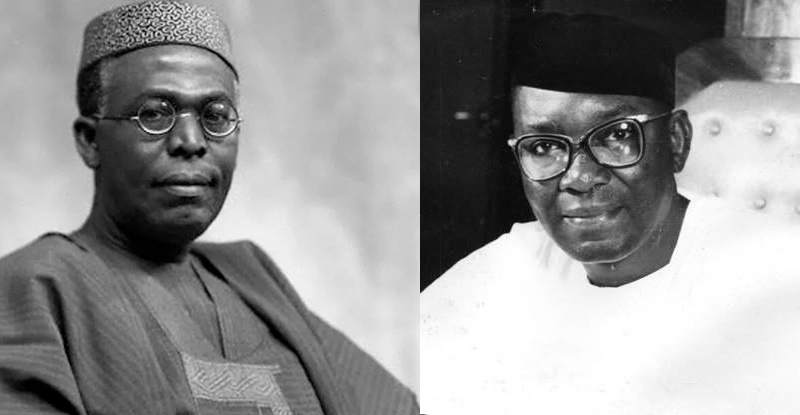Bridging the Divide: A Call for Unity between the Igbo and Yoruba. By Chidi Ekeh

Bridging the Divide: A Call for Unity between the Igbo and Yoruba

The growing animosity between Nigeria’s two largest ethnic groups, the Igbo and Yoruba, is a disturbing development that threatens the progress of a nation already grappling with political, economic, and social challenges. Recent incidents, such as the unfortunate reactions to the disqualification of an Igbo girl in South Africa and the backlash against a Yoruba woman seeking office in Ireland, have exposed a bitter rift between the two ethnicities. Instead of rallying together in solidarity against external or internal injustices, some members of both groups have used these moments to further the cycle of hate. This article explores the history of friendship between the Igbo and Yoruba, highlighting the numerous ways in which both ethnic groups have contributed to Nigeria’s development and success, both locally and internationally. It also calls for unity, emphasizing how collaboration between these two intellectual and economic powerhouses can propel Nigeria into global prominence.
A Historical Perspective: Friendship, Cooperation, and Mutual Growth
Historically, the Igbo and Yoruba communities shared mutual respect and maintained strong ties of cooperation and partnership. Before the colonial era, interactions between these two major ethnic groups were shaped by trade, diplomacy, and migration. The Yoruba and Igbo have long existed as neighbors, with their borders in southwestern and southeastern Nigeria converging in areas like present-day Delta and Kogi states. This geographical proximity fostered economic and cultural exchanges that solidified a spirit of collaboration.
During the colonial period, both groups found themselves confronting a shared political and economic reality imposed by British colonial rule. Political figures from both groups, such as Dr. Nnamdi Azikiwe, an Igbo leader and Nigeria’s first President, and Chief Obafemi Awolowo, a Yoruba political luminary and leader of the Action Group, were instrumental in the fight for Nigerian independence. Though their political approaches sometimes diverged, their common goal was the liberation and progress of Nigeria as a united entity.
Post-Independence and the Seeds of Division
However, following independence in 1960, political competition between Nigeria’s various ethnic groups began to intensify. The first signs of major discord between the Igbo and Yoruba appeared during the political struggles of the First Republic, where a fierce rivalry developed between the ruling coalition led by the Northern People’s Congress (NPC) and opposition figures like Awolowo, who sought a more equitable distribution of power among the regions. The political tension reached a peak following the January 1966 military coup, which led to widespread ethnic strife and culminated in the Nigerian Civil War (1967-1970).
Though the Yoruba were not direct participants in the Biafran secession, the war deepened ethnic divisions across Nigeria. Many Igbos felt marginalized and victimized in the aftermath of the conflict, and distrust grew between the two groups. Despite these setbacks, the end of the war in 1970 marked a period of reconciliation and rebuilding. Many Igbo families returned to Lagos and other parts of southwestern Nigeria, where they had previously established strong business ties.
Igbo Prosperity in Yoruba Land: A Testament to Cooperation
Lagos, the economic nerve center of Nigeria and historically part of Yoruba land, has become home to one of the largest concentrations of Igbos outside of the southeast. The city has seen immense contributions from Igbo entrepreneurs, traders, and professionals who have contributed to the growth and development of the metropolis. From major markets like Alaba International Market to various industries, Igbo individuals have thrived in Yoruba territories, establishing businesses, forging friendships, and contributing to local economies.
The freedom and opportunity extended to Igbos living in Yoruba land is a testament to the history of peaceful coexistence and mutual respect between the two groups. In cities like Ibadan, Abeokuta, and other Yoruba strongholds, Igbos have built thriving communities and integrated themselves into the socio-economic fabric. This hospitality, in turn, has contributed to the prosperity of Yoruba regions, creating a dynamic of interdependence that both groups can celebrate.
Marriages and Friendships: The Bonds that Tie
Beyond commerce and economic exchange, marriages and friendships between the Igbo and Yoruba people have flourished over the years. These unions have served as a powerful symbol of national integration, proving that despite political differences, individuals from both groups can come together in love, respect, and understanding.
Prominent intermarriages have often served as bridges between the two ethnicities. Examples abound of families that have successfully blended the traditions, languages, and cultures of both groups, fostering mutual respect and appreciation for each other’s heritage. These familial ties can help break down the stereotypes and prejudices that fuel ethnic tensions, emphasizing that, at the personal level, we share more similarities than differences.
Friendships between individuals from both ethnicities have also contributed to the breaking down of barriers. In Nigeria’s academic and professional spaces, Igbos and Yorubas often collaborate, share ideas, and work towards common goals. Their shared experiences in universities, companies, and the public sector are crucial in maintaining interethnic cohesion.
The Role of International Success: A Joint Igbo and Yoruba Legacy
When Nigerians look beyond their borders, they will find countless examples of Igbo and Yoruba individuals who have excelled internationally, bringing pride not just to their ethnic groups, but to the entire nation. These success stories are a powerful reminder that Nigerians, when united, can achieve great things on the global stage.
Igbo Achievements Abroad
Many notable Igbo individuals have made significant contributions to global progress in various fields. Dr. Ngozi Okonjo-Iweala, a proud Igbo woman, currently serves as the Director-General of the World Trade Organization (WTO), the first woman and first African to hold this prestigious position. Her work in global finance and economics has made her an internationally respected figure, demonstrating the intellectual power of the Igbo people.
Chimamanda Ngozi Adichie, another globally recognized Igbo, has made waves in the literary world. Her works, such as “Half of a Yellow Sun” and “Americanah,” have earned her international acclaim, and she is considered one of the most influential African writers of her generation. Her voice has shaped conversations on feminism, race, and identity on the global stage, underscoring the power of Nigerian intellectualism.
Yoruba Achievements Abroad
On the Yoruba side, there is no shortage of international accomplishments. Professor Wole Soyinka, a Yoruba Nobel laureate in Literature, stands as one of Africa’s most respected intellectuals and playwrights. His works, known for their political and social commentary, have influenced generations of writers and thinkers both within Nigeria and globally.
Yoruba individuals have also made their mark in the medical and scientific fields. For instance, Professor Olufunmilayo Olopade, a Nigerian-born oncologist, has earned international recognition for her research on cancer genetics, particularly in women of African descent. Her work has significantly advanced the understanding of breast cancer, saving countless lives around the world.
The Potential of Unity: A Combined Igbo-Yoruba Powerhouse
The combined human capital of the Igbo and Yoruba people alone rivals that of many Western countries. Both groups boast a wealth of intellectuals, entrepreneurs, artists, scientists, and professionals whose contributions have a transformative impact not just in Nigeria, but globally. Imagine the potential if these two groups, instead of bickering, focused their energies on building a more prosperous Nigeria.
Collaboration between the Igbo and Yoruba people could revolutionize Nigeria’s economy, governance, and global standing. The wealth of entrepreneurial talent among Igbos, combined with the administrative and political acumen of the Yoruba, can lead to significant advancements in technology, education, and infrastructure. By working together, they can help Nigeria fully realize its potential as the “Giant of Africa” — a nation capable of competing with the world’s largest economies.
The Global Impact of Nigerian Unity
Nigeria is Africa’s most populous country and one of its largest economies. The success of Nigeria, therefore, has implications not only for West Africa but for the entire continent. A united Nigeria, where ethnic groups work together rather than against one another, could become a model for African development and leadership.
If the Igbo and Yoruba people, along with other ethnic groups in Nigeria, can set aside their differences and focus on collective progress, the nation will be well-positioned to lead Africa into the next phase of global economic and political influence. Collaboration on innovation, technology, and education will boost Nigeria’s Human Development Index (HDI), improving the quality of life for millions and securing Nigeria’s position as a global powerhouse.
Moving Forward: Dropping the Hate, Building a Stronger Nigeria
The recent hostilities between the Igbo and Yoruba communities, both in Nigeria and in the diaspora, are a betrayal of the shared history, cooperation, and mutual growth that these groups have long enjoyed. The tendency to insult, demean, or sabotage individuals from the other ethnic group not only weakens the fabric of Nigerian society but also plays into the hands of those who seek to exploit ethnic divisions for personal or political gain.
Nigeria’s success hinges on the ability of its people to come together, transcending ethnic and religious lines to create a unified, prosperous nation. The Igbo and Yoruba, two of Nigeria’s most influential and
successful groups, have a unique opportunity to lead by example. By rejecting hate, fostering cooperation, and building on their shared strengths, they can pave the way for a better, more unified Nigeria.
Conclusion: A Call to All Nigerians
The Igbo and Yoruba have a long history of cooperation, mutual respect, and shared achievements. Their contributions to Nigeria’s economy, culture, and global standing are undeniable, and their potential, when united, is immeasurable. In an increasingly interconnected world, the division between these two groups is a self-imposed barrier that limits not only their individual progress but the progress of Nigeria as a whole.
It is time to reject the narrative of division and hate





